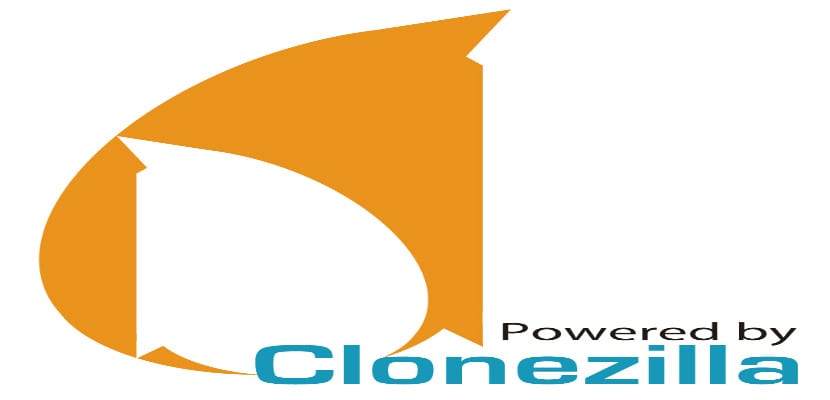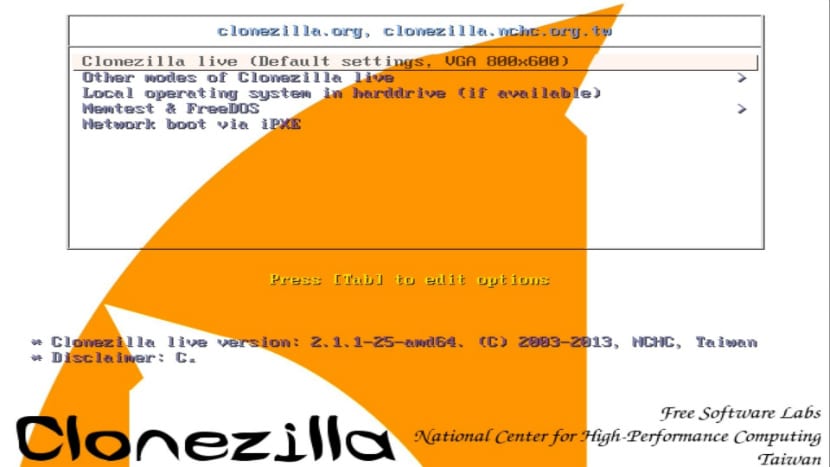
This time we will take a look at Clonezilla, this is a free disk cloning program similar to Norton Ghost, which is paid, Clonezilla It has two versions which are, the live image and another that is the server edition.
Within these versions We also have two systems on which Clonezilla is based, among which we find Debian and Ubuntu, with which independently of the selection of the base system we will be able to carry out diverse tasks.
Minimum system requirements.
Because Clonezilla only has what is essential for its work, the hardware requirements we need to have are minimal. To run the system we require:
- An x86 or x86-64 processor
- At least 196 MB of RAM
- Boot device, for example, CD / DVD drive, USB port, PXE, or hard disk.
As you can see, the demand for requirements is minimal, since the system does not have a graphical interface, so it is only limited to use through the terminal.
Clonezilla Live
First instance on Clonezilla Live (live image) allows users to clone a machine individually, either clone an entire hard drive or just a specific partition.
On the other hand, its Live version it also allows us to create an image of our system with which we can make backups of it, in a disk image format, which we can restore when necessary.
Notably We can store these disk images on an external hard drive, some USB or where you see fit, The restoration can be done directly by inserting the medium where is it stored or using an SSH server, Samba or some network file share.
Clonezilla Server Edition.
Finally, Clonezilla SE (server edition) might say that it is more powerful since its use is perfect for system administrators, since it is for a massive deployment, it can allow us to clone many machines at the same time. Clonezilla saves and restores only used blocks on the hard drive. This increases the efficiency of cloning.
This tool has support for many types of file formats Among the most popular we highlight NTFS, FAT16, FAT 32 for Windows, ext4, ext3, ext2 for Linux, HFS for Mac OS, UFS for FreeBSD, NetBSD and OpenBSD, among many others.
Clonezilla also gives us the possibility of being able to perform the cloning successfully in case of not having the file system format through the DD command which will be in charge of copying sector by sector.

As well It has support for machines that have UEFI as a bootloader.
On the other hand also Clonezilla allows us to encrypt the images of our system bakcup, thus giving you the necessary security to protect our data.
This is done with ecryptfs, an enterprise cryptographic stacked file system that is POSIX compliant.
Now it also has certain restrictions when carrying out this work, in the first instance we must take into account the following:
Limitations
- We cannot clone a partition or disk that is in use, this must be disassembled for the process.
- The destination partition must be equal to or greater than the source partition.
- The partition tables must be the same on both disks and / or partitions.
- Differential / incremental backup is not yet implemented.
- Live Clonezilla recovery with multiple CDs or DVDs is not yet implemented.
- Now all files have to be on a CD or DVD if you choose to create the recovery ISO file.
Download Clonezilla
Finally, if you dare to know this free cloning option you can have it from its official page and select the base system to finally proceed to download it. The link is here.
Finally, I recommend that if you do not have knowledge of what you are going to do, look for a good tutorial and practice on virtual machines, since this tool can result in data loss if you do not know how to use it.
If you know of any other software for the same purpose, don't hesitate to share it with us.